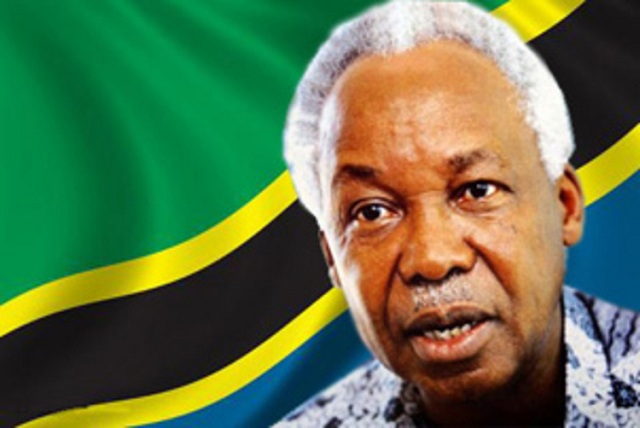EDITORIAL COMMENT: Indeed Nyerere deserved the honour

In February 2014, speaking at a birthday party hosted for him by staff in his office, President Mugabe voiced concern at the failure of the continent to honour its founding fathers.
He continued on that line when he took over as Sadc chairman six months later, reiterating that the continent was, instead, actually showering praises and bestowing honours on foreigners and some African figures who played peripheral roles in liberating the continent from colonial bondage.
In particular, he wondered why Africa had not adequately immortalised the memory of the late Mwalimu Julius Kambarage Nyerere, whose country, Tanzania hosted the Organisation of African Unity Liberation Committee from 1963 to 1994. The committee co-ordinated logistics, training and other support for liberation struggles that were being waged in a number of African countries during that time.
It was instrumental in the attainment of independence in Guinea-Bissau (1974), Mozambique (1975), Cape Verde (1975), Angola (1975), Zimbabwe (1980), Namibia (1990) and South Africa (1994).
It was risky business then for newly liberated countries to openly support freedom struggles elsewhere because colonial regimes often overthrew such governments. Selfless Nyerere took the risk.
Yet, reports say, in the new African Union headquarters commissioned in Addis Ababa, Ethiopia in January 2012, Nyerere’s portrait did not feature among other African luminaries.
In 2007, the governing African National Congress of South Africa named figures that it said were heroes in the right against apartheid. Nyerere’s name was missing from the list.
In his 2014 birthday speech, the President said whereas all honour had been accorded on some founding fathers of Africa, Nyerere was in fact, being humiliated.
However, Zimbabwe appears to be now leading in the effort to give Nyerere the lofty honours he thoroughly deserves. Late January this year, a regional think tank based in Harare, the Southern Africa Research and Documentation Centre (SARDC) published a book Julius Nyerere: Asante Sana, Thank You Mwalimu, a tribute to the iconic Tanzanian.
A compilation based on statements and speeches Nyerere made between 1959 and 1999, the book was co-published by the SARDC, House of Books, National Gallery of Zimbabwe and African Publishing Group in Zimbabwe as well as Mkukina Nyota of Tanzania.
“He (Nyerere) showed us a way that our struggle can also have friends not just in Africa but also outside Africa,” said President Mugabe, launching the book in Harare.
“So his links with China became our links with China, his role in establishing China-Africa relations became also our China-Africa in due course. And I was later to develop that China is indeed our greatest friend. Mwalimu firmly believed that freedom and independence could only be achieved when people were united, working together with a sense of common purpose.”
We are pleased that the SARDC and by extension, Zimbabwe continue to accord Nyerere a place at the very top of the continent’s heroes.
This week, the think tank renamed its premises in Belgravia, Harare, Julius Nyerere House. Most fittingly, Tanzania’s third president, Benjamin Mkapa was the guest of honour at the momentous event.
Nyerere was born in Butiama near Lake Victoria on April 13, 1922 and died on October 14, 1999.
Tanzanians refer to him as Baba wa taifa, father of the nation in Swahili. He was the driving force for the independence of Tanganyika in December 1961. A man who aspired for unity of Africans, he worked for the amalgamation of mainland Tanganyika and the island of Zanzibar, an effort that materialised on 26 April 1964 to create the United Republic of Tanzania.
He was a charismatic leader blessed with sharp intellect, fortitude and love for his people and Africa as a whole.
Naming landmarks, important organisations, processes or events after important personages is a common way to show respect to those icons. It ensures that their names are visible and people are all the time reminded of their existence, once upon a time, and the starring roles they played in a range of human endeavours — sport, arts, economics, and politics and so on.
The departed who are not accorded such honours tend to drift away from peoples’ memories and they actually die twice, in the physical sense and as far as their names are concerned.
Nyerere must not belong to the latter group. He belongs to that elite group of the founding fathers of African liberation together with Kwame Nkrumah, Agostinho Neto, Kenneth Kaunda, Samora Machel, Seretse Khama and Ahmed Sekou Toure.
They thought well ahead of their time by fighting against colonialism when it looked heretical, nay foolhardy for a black person to confront the “chosen” class, white colonialists.
Individual African countries and at the level of the AU must always remember these legends, and a few others they worked with in the seemingly impossible assault on settlerism. They must be a permanent inspiration for us as Africa moves to the next level of more comprehensive freedom and independence from foreign domination — control of our economies and resources and against neo-colonialism.
We hail SARDC and Zimbabwe for bestowing the accolades on Nyerere. Africa needs to do likewise, not only with regards to Nyerere, but other legends of African liberation and development as well.








Comments